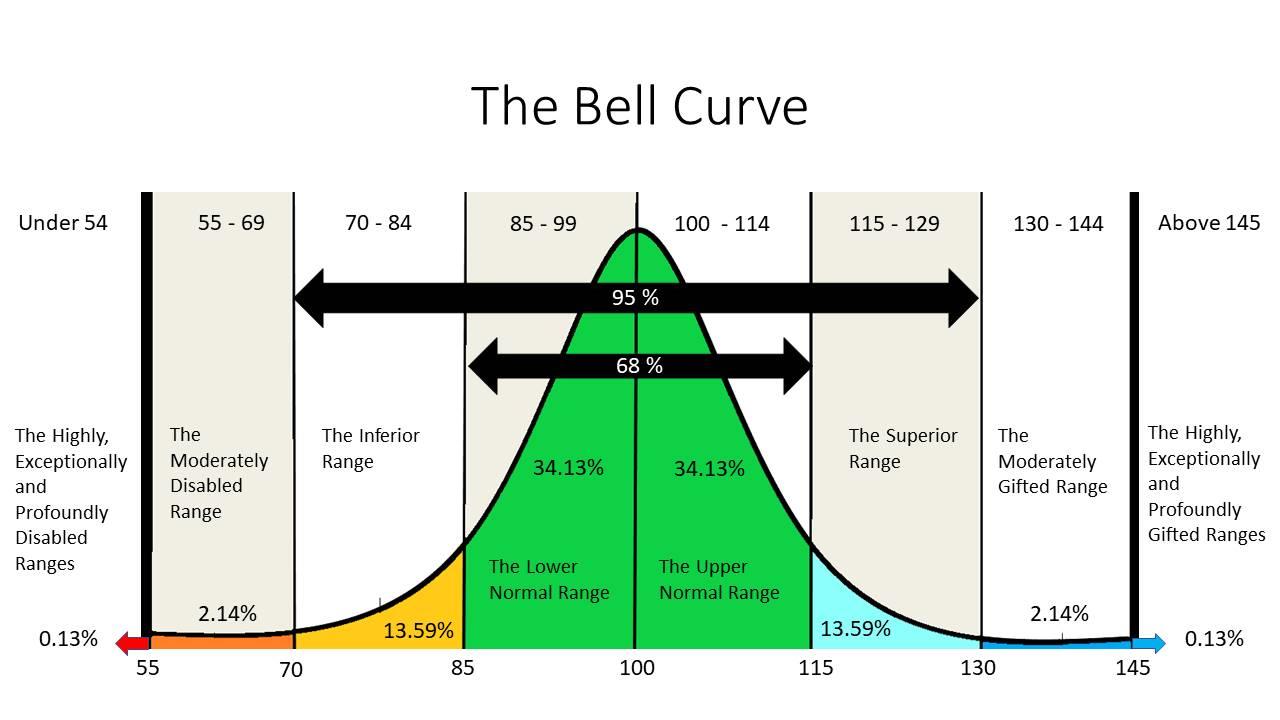2.5 The Perception of Intelligence
The “Dunning-Kruger effect”91-92 states that people of lower I.Q. levels overestimate their own
intelligence and competence. However, more recent studies93 have revealed that everyone does it
to some degree, or at least struggles to self-assess objectively. Similarly, one can logically
surmise that, the wider the cognitive gap, between two people, the more unlikely they are to
accurately gauge each other’s intelligence: the average person is ill-equipped to appraise higher
I.Q. rankers’ intelligence with precision. In addition to that issue, the way men’s and women’s
intelligence is perceived, differs greatly.
When scrutinizing men’s intelligence, the perception94 of I.Q. ranks, by any observer, increases
along with men’s scores up to 135-140. At this threshold, the observer no longer notices any
increase in intelligence, for each point gained, but rather perceives a decrease, mistaking
brainpower for quirkiness or even stupidity. In essence, most observers are unable to notice a
variance between an I.Q. score of 120 and one of 140. Equally, men with a score over 160 are
considered, by most people, as 110 scorers, or even below average.
The intelligence of women, on the other hand, is perceived to be between 100 and 140 whatever
their true I.Q. scores. A majority of women are placed at the 110 notch, those under 100 and
above 140 being equally mistaken for under average.
As a result, I.Q. scorers above 140 require first-rate accomplishments205, so as to be recognized,
for who they truly are, in term of intelligence. The intelligence of individuals with particular
cognitive issues is also frequently misestimated.
According to the latest studies, autism, which is generally misguidedly associated to low
intelligence80 (except in the case of what was referred to as the “Asperger Syndrome”), involves
imbalanced aptitudes more than lack thereof. People “on the Spectrum” are, in reality,
extraordinary intelligent in certain fields but perform poorly in others275, this leads to a
misleading global I.Q. score. For instance, while Einstein’s global score is reported as 160, the
I.Q. sub scores linked to his revolutionizing physics, are obviously much higher.
It is worth noting, how little, the concept of intelligence is understood by the general public.
Most people equate it with factual knowledge, wealth, education, or high-level status.
As we’ll see, in part-two of this book, even if correlations do exist, intelligence is characterized
by much deeper notions.

3. I.Q. Understood by Standard Deviations
I.Q. scores are to be found on a continuous curve, but certain clusters of dots reflect the
psychological and cognitive proximity of the subjects they represent more than points positioned
very far apart. Therefore, scores are more meaningful if gathered in sets95 of a particular extent.




